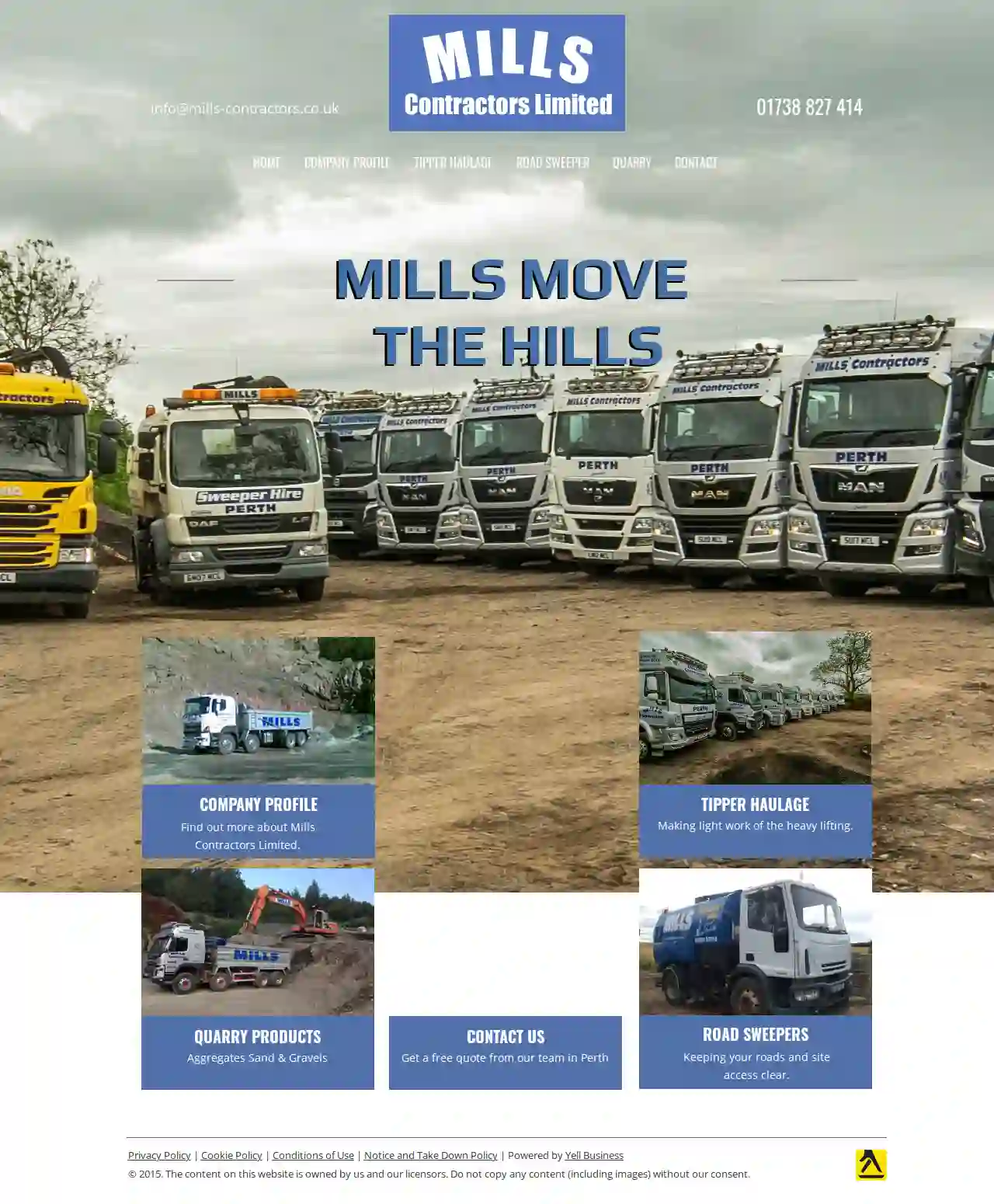Excavation Contractors Perth
Best Excavation Services in Perth
Receive 3 FREE Excavation Company Near Me quotes for your project today! Compare profiles, reviews, accreditations, portfolio, etc... and choose the best offer.

DS Developments
4.33 reviews11 Viewlands Road, Perth, PH1 1BH, GBAbout DS Developments DS Developments is run by Derek Stronach, a qualified Joiner with over 20 years experience working within the commercial and private sector. Specialising in new build, extensions with kit manufacturing and complex roof structures. Derek can provide a free consultation at the beginning of your journey to help advise you of your design and space required within your budget desires. Please contact for more details. Friendly Builder you can Trust DS Developments can support you by working with your or DS Developments architect and engineer. This friendly joint approach ensures your building project programme runs efficiently, maximises the re-use of materials and overall helps protect your budget and the environment. Our past customers are only too happy to recommend us and speak highly of our work. Fully Documented Past From conception to completion, we keep a large archive of past builds, detailed by thousands of images which can help you visualise your project and support building control. For each project we keep a portfolio demonstrating the standard of work, and customer testimonials. Right team : Right job No matter the size of your build, the smooth running of your project is our number one priority. DS Developments works with others to get the job done and will project manage beginning to end if so desired. We achieve this through our proven, experienced and established network of professionals bringing specialist skills to site when required.
- Services
- Why Us?
- Our Team
- Testimonials
- Gallery
Get Quote- Pe
Perth & Kinross Heritage Trust
4.58 reviewsPerth, GB- Services
- Why Us?
Get Quote 
Alder Archaeology Ltd
32 reviews55 South Methven Street, Perth, PH1 5NX, GBWelcome to Alder Archaeology Alder Archaeology Ltd is a professional archaeological organisation based in Perth, Scotland. We offer a range of services to help with archaeological conditions that arise from development. We can also provide general archaeological advice to developers and individuals prior to and during the planning process.
- Services
- Why Us?
Get Quote- Dr
Drainco (Scotland)
1Perth, GB- Services
- Why Us?
Get Quote 
Mills Contractors Ltd
3.314 reviewsLower Friarton, Friarton Road, Perth, PH2 8DG, GBMills Contractors Limited: Your Trusted Partner for Construction and Site Services Mills Contractors Limited is a well-established family-run business with over 40 years of experience in the construction industry. We specialize in tipper haulage, road sweeper hire, and quarry products, providing comprehensive solutions for a wide range of projects. We take pride in our modern, well-maintained fleet and are committed to continuous investment in our vehicles and plant. Our dedication to professionalism and efficiency ensures same-day service, tailored to meet our customers' specific needs. Our friendly and knowledgeable team is always available to address your inquiries and requests. We are centrally located in Scotland, enabling us to serve clients across the region. Our commitment to excellent customer service has been instrumental in our growth, reflected in our loyal customer base. We cater to commercial, industrial, and domestic clients, providing high-quality service with meticulous attention to detail. Whether you need tipper haulage for your project, road sweeping to keep your site clean, or quarry products for construction, Mills Contractors Limited is your reliable partner. Contact us today for a free quote and let us help you make light work of the heavy lifting.
- Services
- Why Us?
- Gallery
Get Quote- So
Sonder Design & Build
1Perth, GB- Services
- Why Us?
Get Quote
Over 11,537+ Excavation Businesses on our directory
Our excavation providers operate in Perth & beyond!
ExcavationHQ has curated and vetted the Best Excavation Contractors near Perth. Find a top & trustworthy contractor today.
Frequently Asked Questions About Excavation Contractors
- Project Size and Scope: Larger, more complex excavations naturally take longer.
- Soil Conditions: Rocky or challenging soil types can slow down progress.
- Site Accessibility: Limited access might require more time for maneuvering equipment and hauling materials.
- Weather: Inclement weather can cause delays.
- Permitting and Inspections: Waiting for permits or inspections can extend the timeline.
- Clearly Define the Scope: Outline the project's goals, including the excavation area, depth, grade, and intended use.
- Obtain Necessary Permits: Research and acquire any required permits from your local authorities.
- Mark Utility Lines: Contact your utility companies to locate and mark underground utilities to prevent damage.
- Communicate with Neighbors: Inform your neighbors about the project's timeline and potential noise or disruptions.
- Prepare the Site: Clear any obstacles, such as vegetation, furniture, or structures, from the excavation area.
- Discuss Safety Protocols: Review safety procedures with the contractor to ensure a safe work environment.
How long does an excavation project take?
What is the difference between cut and fill excavation?
Cut: Involves excavating soil from an area where the existing grade is higher than the desired grade.
Fill: Refers to using the excavated soil ('cut' material) to raise the grade in an area where the existing grade is lower than desired.
This method minimizes the need to import or export soil, reducing costs and environmental impact. It's commonly used for site preparation, road construction, and landscaping.
What should I do before excavation starts?
What is the difference between topsoil and subsoil?
Topsoil: The uppermost layer, typically rich in organic matter, nutrients, and microorganisms. It's essential for plant growth and is often darker in color.
Subsoil: The layer beneath the topsoil, containing less organic matter and generally denser. It provides support for roots but is less fertile than topsoil.
During excavation, topsoil is often removed and preserved separately for later use in landscaping, while subsoil is typically used for backfilling or other less demanding applications.
How long does an excavation project take?
- Project Size and Scope: Larger, more complex excavations naturally take longer.
- Soil Conditions: Rocky or challenging soil types can slow down progress.
- Site Accessibility: Limited access might require more time for maneuvering equipment and hauling materials.
- Weather: Inclement weather can cause delays.
- Permitting and Inspections: Waiting for permits or inspections can extend the timeline.
What is the difference between cut and fill excavation?
Cut: Involves excavating soil from an area where the existing grade is higher than the desired grade.
Fill: Refers to using the excavated soil ('cut' material) to raise the grade in an area where the existing grade is lower than desired.
This method minimizes the need to import or export soil, reducing costs and environmental impact. It's commonly used for site preparation, road construction, and landscaping.
What should I do before excavation starts?
- Clearly Define the Scope: Outline the project's goals, including the excavation area, depth, grade, and intended use.
- Obtain Necessary Permits: Research and acquire any required permits from your local authorities.
- Mark Utility Lines: Contact your utility companies to locate and mark underground utilities to prevent damage.
- Communicate with Neighbors: Inform your neighbors about the project's timeline and potential noise or disruptions.
- Prepare the Site: Clear any obstacles, such as vegetation, furniture, or structures, from the excavation area.
- Discuss Safety Protocols: Review safety procedures with the contractor to ensure a safe work environment.
What is the difference between topsoil and subsoil?
Topsoil: The uppermost layer, typically rich in organic matter, nutrients, and microorganisms. It's essential for plant growth and is often darker in color.
Subsoil: The layer beneath the topsoil, containing less organic matter and generally denser. It provides support for roots but is less fertile than topsoil.
During excavation, topsoil is often removed and preserved separately for later use in landscaping, while subsoil is typically used for backfilling or other less demanding applications.